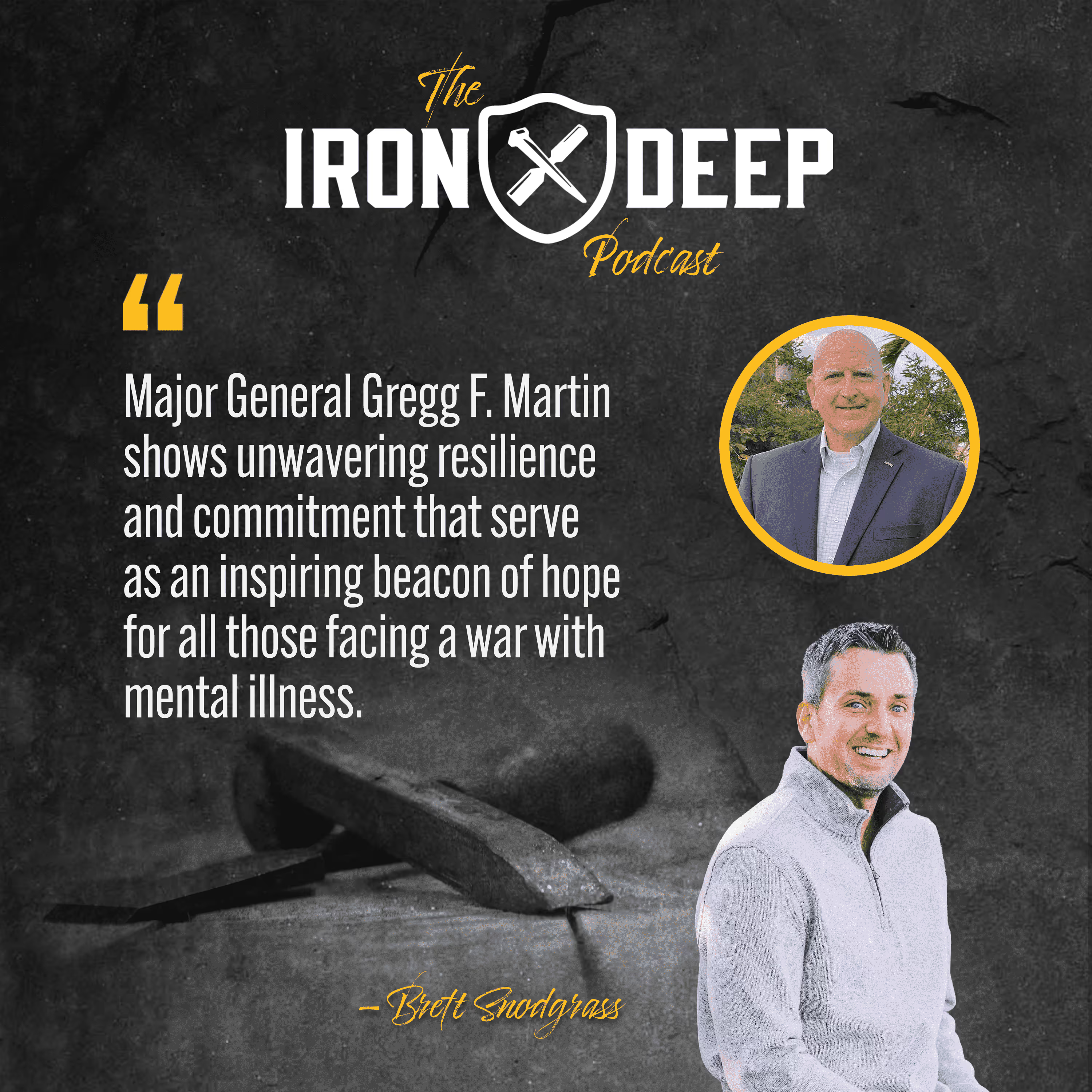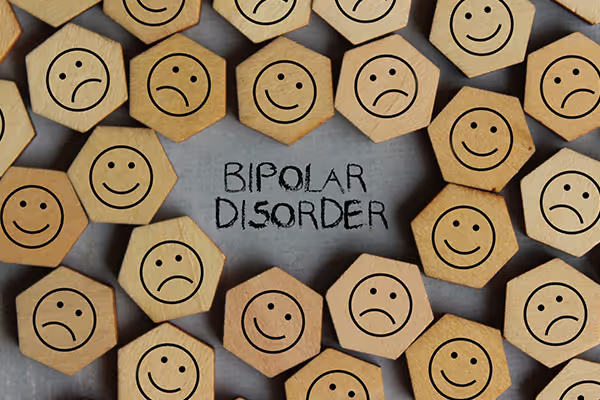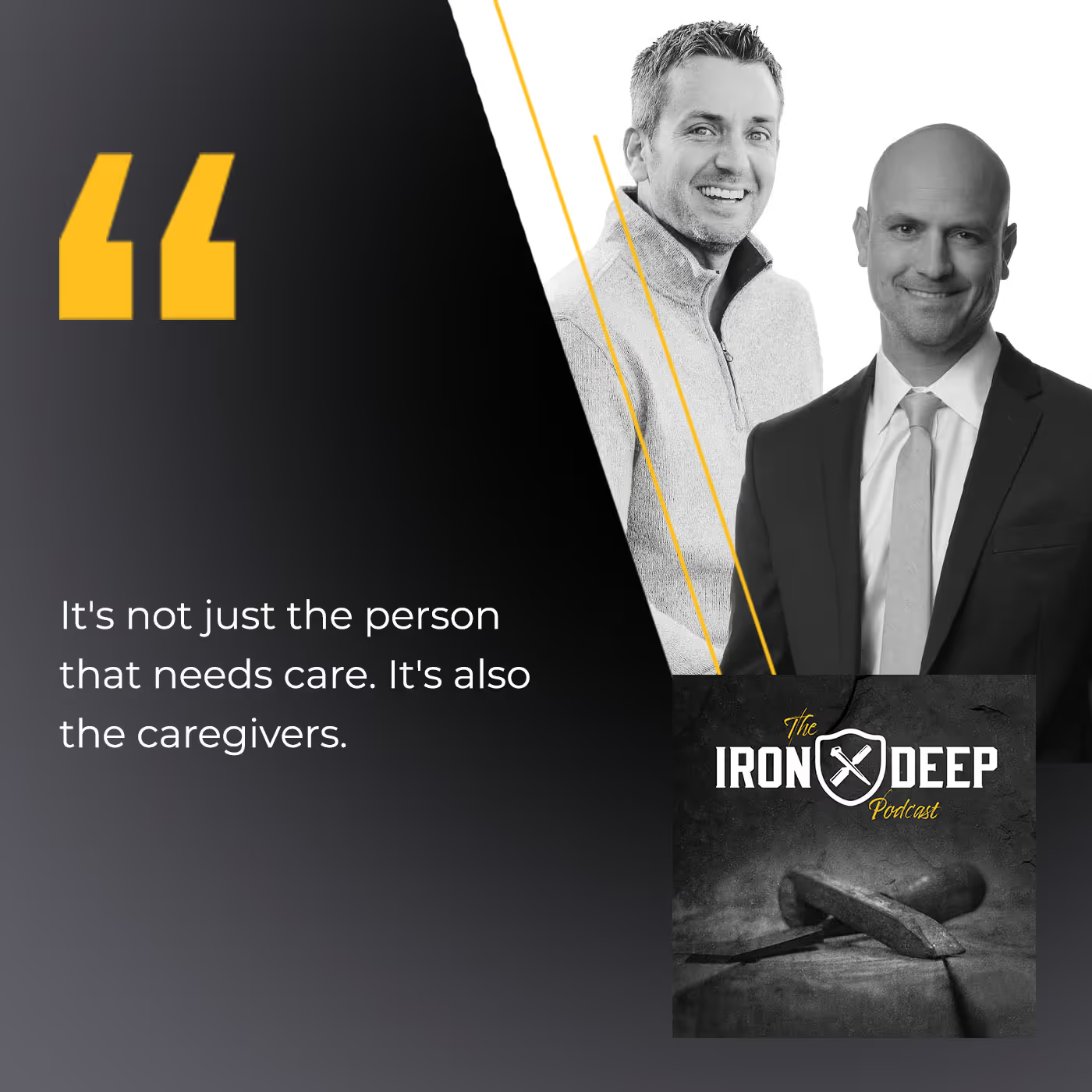Dealing with mental illness is a forever war, one with a ton of lessons to give if you are willing to receive them. We learn more about this profound subject with Gregg F. Martin, PhD, MG Army (Ret.), as he courageously recounts his unending battle against the relentless foe of mental illness. In this deeply introspective episode, Major General Martin shares the gripping narrative of his lifelong struggle with bipolar disorder, a condition that unknowingly propelled him to soaring highs of energy and creativity, only to plunge him into the abyss of depression. As he shares journey, we explore the vital importance of seeking professional help, the transformative impact of medication, therapy, and healthy living, and the five essential 'P's to anchor one's recovery: purpose, people, place, perseverance, and presence. Major General Martin's story underscores the pressing need to destigmatize mental health issues, encouraging open conversations and understanding, while offering hope to those who, too, wage their own eternal war against mental illness. Tune in for more!
I have Major General Gregg F. Martin on the show with me. What's going on, Gregg?
I'm here in beautiful sunny, Florida in Cocoa Beach, and the weather has just begun to get a little bit cooler, which is a nice relief from the hot humidity.
I'm sure like a lot of Floridians, you're looking forward to this time of year and getting a little bit away from the heat. I'm super excited about this show. You were a retired Major General for 36 years in Army combat. You have a remarkable career. You are a leader in the Army and also in your life. You have a PhD and you're now a bestselling author. You've written a book called Bipolar General: My Forever War with Mental Illness, and that's what the topic of this show is going to be about in this episode.
Gregg, I work with men and we work with a lot of businessmen, real estate men, and men who are leaders in the business world. Also, they're leading their families. This is the topic that we should talk about a lot. However, we don't. We keep very quiet about it. A lot of men live lives in this silent desperation of their own mental illness or their affected by someone else with mental illness.
Thank you so much, number one, for serving. Thank you so much for sharing your story and being vulnerable. That's one of the biggest things. I know you had to be vulnerable to pour out your soul on this best-selling book, Bipolar General. Let's start with you. Tell us a little bit about Gregg Martin, your backstory, and then we'll dive into you know your book.

I grew up in Holbrook, Massachusetts near Boston. Ever since I was a kid, I had enormous energy, enthusiasm, drive, creativity, and problem-solving skills. It carried me through high school where I was a top student-athlete leader. At West Point, it’s the same thing as in the Army Ranger School. Also, out in the Army for years and decades leading soldiers around the world doing hard dangerous missions.
During my spare time, I started running marathons and in a space of a couple of years, I ran 7 marathons in under 3 hours each including a 236. I took up skiing and became a good skier in a pretty short time. The Army sent me to grad school at MIT and they said, “We want you to get one Master's degree in Engineering.” I came out of it with two Masters and a PhD. Plus, I had done the Army Command and General Staff College by correspondence during that time.
I share this with you because I have since found out that I was born with a condition called hyperthymia. It is not a mental illness, but it's a good personality type in which my brain was creating and pumping extraordinary amounts of powerful brain chemicals like dopamine, endorphins, and others. It would produce them and distribute them in my brain which elevated me to a level of near-continuous mild mania.
Essentially, I got a chemical boost or enhancement my entire life. They gave me great success and energy, but what I didn't know is that during all those years, I was slowly inching my way up towards actual bipolar disorder. By the time I got into my 40s, I was very close to having an onset of bipolar disorder which came when I was 47 years old in 2003 during the Iraq War.
A way to think about bipolar disorder, it's not an on-off switch like one day you don't have it and then the next day, you do have it. It's a slow burn that starts with kindling wood in a fire and then it goes to bigger kindling and then sticks and then small logs. Finally, you have real logs and a real fire. It's a spectrum that goes up. My onset was at age 47 in 2003 leading soldiers in combat in the Iraq War. The intense stress, thrill, pressure, and euphoria triggered my genetic predisposition for bipolar disorder and that's where my bipolar disorder started.
That's amazing because you have all these things out there, mental health disorders or issues. We hear a lot about men and women struggling with depression. Kids are labeled. Maybe they have ADHD, autism, and things like that. I want to hear a little bit more about bipolar disorder because it sounds like this is something that triggered later in your life but it didn't happen maybe early in your life as a kid, as a teen, or even as someone in your twenties.
This is something that happened in your 40s. However, in your twenties, you were living on that euphoria, that dopamine, and this high drive all the time to things that we’re probably all trying to get to why we're doing certain things in our life. We're trying to get that high or that dopamine kick. Can you dive into a little bit more about bipolar because a lot of our readers don't quite understand the depths of it?
Bipolar disorder is a mood disorder in which, essentially, there is a malfunction, a disorder, or an illness inside the wiring of the brain to where the brain decides it wants to go higher and go into mania. If on its own, independent of the will of the person, decides to produce and distribute excess amounts of these chemicals it then causes the mood to go up into very high energy, less need for sleep, talking faster, greater creativity, and problem-solving skills.
Oftentimes, a sense of grandiosity where you think you're on a special mission from God, or extreme religiosity where a person becomes a religious fanatic. Also, very reckless decision making like quitting one's job for no good reason with no replacement job to go into. Spending lots of money that you don't have, getting into agitated and angry encounters that often lead to violence that leads to prison. All of these different characteristics reflect mania, the high side. The mania can also be a happy, jolly, high-spirited mania or can be an angry, agitated, raged, or mean-spiritedness. It could be either flavor.
When the brain gets tired of being high, it must come down. When the brain decides, “I've been high for long enough. It’s time to go down.” It starts to underproduce and under-distribute these same chemicals which then drives the person into depression. Depression is much more than just having a bad day. It's where you feel utterly hopeless. You're never going to get better. You lose interest in everything. You have little to no energy. You are thinking about death and dying all the time. Often, you have suicidal ideations.
What bipolar disorder does is it cycles between the high of mania and the low of depression. In my case, after my onset in 2003, my manic highs kept getting higher and higher and my depressive lows lower and lower until I went into what they call full-blown mania in 2014, twelve years later, in which I went into a state of madness and insanity off the tracks.
Because of that, I was fired, retired, and hospitalized for my mental condition. I fell into the worst impression of my life where I just wanted to die. I’m hopelessly depressed. I have terrifying psychosis which are delusions and hallucinations. I went through what I call bipolar hell for two solid years of absolute misery where all I wanted to do was die.
Thank you so much for explaining that. I, for one, can't even relate to the experiences and exactly what you're going through. Even before the show, you said a lot of us may know someone who is maybe not to that extreme but has some form of mental illness. My wife and I have a friend who suffers from depression. Again, I try to relate and talk but I think that even people around this type don't know what to do.
Can you take us into some of the help? You've reached this point where you're so down. You've reached this high of highs and low of lows. You've written this book. You're here with us now. You've been able to have some direction, relief, and a turning point in your life. Can you talk to us about what happened there to turn and what were some of the effects? Take this into that question and then along with that, what were some of the effects on some people around you who were closest to you?
From 2003 to 2014, I was mostly manic but on occasions, I got quite depressed. Three different times during that stretch, I went to see a doctor and told him, “I feel depressed. I'm normally high-energy and high enthusiasm, but I'm down. I have no energy. I feel hopeless.” All three times, the doctors said, “You're fine,” but they were wrong. They were missing the fact that I was in a depressive cycle of bipolar disorder.
At this point, did you even know what was going on?
Not at all. When you're manic, you feel like Superman. You are the smartest person in the world. You don't think there's anything wrong because you feel so fantastic, your job is going great, and you feel high. You are super enthused and have incredible energy. When you're in a state of mania, you don't think there's anything wrong at all.
After I got fired, retired, and so forth, I was ordered by my commander to get a psychiatric evaluation which I did. They said, “You're fit for duty. There's nothing wrong,” but they were completely wrong. They didn't get the collateral information. They didn't do enough homework on my personality. I got 2 more evaluations in July 2014 and all 3 said, “You're fine. You're fit for duty,” but all of them were wrong.
It wasn't until a couple of months later when I had sunk into crippling hopeless and deathly depression that then I said, “There's something wrong with me. Something's not right. Something's wrong with my brain.” I went back to the same doctor and said, “I need help.” They were then able to piece together, do a little more research, and do homework. They were able to get the correct diagnosis of bipolar disorder type 1 with psychosis, but then I went from bad to worse.
The medications and the treatment didn't have any effect on making me better. I went through two full years of what I call bipolar hell. I was hospitalized and all that. Finally, my wife and a good friend from the Army stuck with me and helped me get into a very good VA hospital, the Veterans Administration. I went there. I was hospitalized. I stayed for six weeks and then but I still didn't get better until my wife complained.
It still didn't break the depression even with electric shock therapy and other things. My wife said, “We have to try something stronger.” The doctor said, “Let's try lithium,” which is a natural salt from the Earth. It often works well for bipolar disorder. We tried lithium and it was unbelievable. Within a few days, my depression and psychosis went away. They left me. Since then, I've been on a journey of recovery. I called it a journey of recovery because you never recover and get healed. Bipolar disorder never goes away. You have to manage it like a chronic disease the way a person manages diabetes.

It sounds like the lithium had a huge effect on you. That's more of a natural type of supplement or medication. Is that still the thing that you're using now that's helping with your recovery?
Lithium is the primary medication that I'm using that broke the back of the depression and keeps me from going back into mania, but I do take a couple of others. There's another one called Lamictal which is commonly used for bipolar disorder. It works pretty well. Also, another one is called Latuda, which is a kind of anti-psychotic medication. The combination of those three together is the magic formula for me that has been working for years.
You mentioned people that are closest to you like your wife. She knew that you needed help. It's not just the person that needs care. It's also one of the caregivers and the effects. I'm assuming relationships have been very difficult during some of these times, keeping relationships or being relational. Can you talk to us about the effects of the people closest to you or the loved ones in this? Also, the people that have stuck with you and helped you through it.

Bipolar disorder turned not only my life upside down but the lives of my wife, children, three kids, and even close friends and extended family because it's a shocking tumultuous ride that upsets everything. For me, it was hard, but for my wife, it was too to see her previously healthy husband in a state of full-blown mania where I was insane and then falling into depression where I wanted to die. It was very difficult.
She wrote a good piece along with my three sons in the book. She talks about how she coped with it. She was very supportive, loving, and all of that. On the other hand, she tried not to do everything for me in order to challenge me to do stuff on my own. Her real key was every day to take it one step at a time or one day at a time. Do what you have to do, do the routine things, get up, take care of stuff in the house, eat breakfast, and take the dog out on a walk.
She does her routine every day and does not allow herself to be consumed with my medical issues or bipolar disorder. That’s what she did. Although she was very helpful in getting me hospitalized and helping me along the way since then, interestingly, I talk about it in a book. 2 of our 3 sons also have been diagnosed with bipolar disorder at a much younger age than me. Each of them was the same thing. It was before I was. It turned their lives upside down. It turned the family upside down. I'm the third one in the family who is afflicted with bipolar disorder.
Is this a hereditary thing that people should know?
Yes.
The effects of this have been astounding. I want to talk about you know the effects because you were a leader. You had lost some of that as well. I want to talk about you just sharing. I want to talk about your vulnerability piece and how impactful was it to you. Is this something that you hid for a long time? There are certain parts that you couldn't hide possibly because of the state of mania that you were in. Was it helpful to get into a community and be able to share about this? Can you talk about that and your journey with that as well?
I didn't hide anything at any point in my life because I had no idea that I had bipolar disorder. When I had my onset in the Iraq War, I didn't know I had an onset of bipolar disorder. All I knew was that I felt better than I had ever felt in my life. I had more energy. I felt smarter. My brain was working faster. I didn't need sleep. I was doing an unbelievable job moving all over the battlefield. I felt like Superman.

There's no reason to think, “Maybe I have bipolar disorder,” because the only thing I felt was how great I was doing. The feedback I got from everybody was that I was like Superman in the war. That continued for twelve years when I did think there might be something wrong when I was depressed. I went to the doctor three times and said, “I feel depressed. What do you think's going on?” All three times they said, “You're fine. Just keep doing what you're doing.”
However, they were wrong. They didn't see the pattern of bipolar disorder because they didn't do enough collateral information gathering with family, friends, and colleagues. When I went into full-blown mania in 2014 and was fired and retired, again, I was in mania. When you're in mania, you feel great. You feel like Superman. I didn't think there was anything wrong with me and then I went to the doctor and got examined because that's what the Chairman of the Joint Chiefs of Staff who was my boss ordered me to go.
They said, “You're fine. There's nothing wrong.” They said it not once, not twice, but three times. I was convinced there was nothing wrong with me until I crashed into depression. I said, “There is something wrong with me. This is terrible.” I went back to the doctor in November of 2014. Now, we're talking twelve years after the onset. They said, “You have bipolar disorder type 1 with psychosis.”
I believe they said, “I'm glad to know that because now that we have a label on it we can go about coming up with a program and a plan to recover from it.” I went from bad to worse. I had two years of bipolar hell where I was crawling through hell but I didn't hesitate to tell people I have bipolar disorder because I know that bipolar disorder is physiologically real inside the brain. It's a malfunction of the inner wiring of the brain. It's not due to a lack of willpower or a lack of character. The person who's sick, it's not their fault. It's just that the brain is sick. It’s the same way if somebody has diabetes. It's an illness. Cancer is an illness. Heart disease is an illness.
I looked at it and said, “There's nothing for me to keep quiet or to be ashamed of because I've got a physiological disease inside my brain and I'm going to work hard to get better.” I was never embarrassed or ashamed because that stigma is based on the faulty belief that it's the person who's sick and that it's their fault. It's an illness inside the brain.
Sometimes it's because you look healthy. Especially when you were in the Superman mania mode, they're like, “He's so productive. He's like Superman. He can do all these wonderful athletic things. What a great athlete and physical shape.” You don't look like anything's wrong but something is going inside the brain. Someone who doesn't have that has a hard time to relate.
Mental health has been something that's been rising and rising. We've been talking about it the more we see. It seems like more and more now. I want to talk to the people that are out there right now, to the audience that maybe they might be struggling with mental health or they know someone who is struggling. What are some steps? Number one is to be aware. A light bulb for you is to have some awareness around it. Now, what do I do with that? Can you take us into that and talk to our audience?
Mental illness can be deadly. Bipolar, depression, and other ones can lead to destroyed marriages, ruined families, ruined careers, finances, addictions, homelessness, prison, and suicide. That's the bad news if they're left unattended. However, the good news is that if you go get professional medical help and then follow the steps, you can live a happy, healthy, and productive life.

1) Get in and see a doctor. This is where a friend or a family member may have to come in and help because oftentimes the person with the mental health affliction doesn't think there's anything wrong, they don't want to get help, or they're resistant to go get treatment. The friend or the family member needs to persuade the person, “It's in your best interest. Let's go get a checkup. If there's nothing wrong, fine but if there is, you can get on the road to healing.” Seeing a doctor's number one.
The doctor, after they’re diagnosed, is probably going to prescribe some type of medication to keep the brain chemistry and balance. For me, lithium is the big one, but the other ones I mentioned as well. You need that medication for your brain to be stable. 2) It’s very important to work with a therapist and talk about your life, your issues, and your triggers. Also, how to protect yourself. How to deal with complicated situations. Therapy is number two. 3) Healthy living. It includes a healthy diet, exercise, plenty of sleep, low stress, water, and so forth. Those three elements are necessary but not sufficient for a recovery that's built to last.
You then need to anchor those three into what I call the five Ps. 1) You have to develop a Purpose for your life. You have to have a purpose that motivates and inspires you. For me, it's sharing my bipolar story to help stop the stigma, promote recovery, and save lives. 2) You need to get with a group of People who are fun, energizing, and motivational to be with. You have to surround yourself with that kind of people. 3) You want to live in a Place that enables you to be with the people you like and to do the things you want to do. It is conducive to a healthy life.

4) Perseverance. You need to have the will to win because recovering from mental illness or brain condition is very hard. There are going to be setbacks. There might be relapses and you have to be determined to get back up and keep moving forward. 5) Presence. Presence means the ability to get outside of your own head, think about your own thinking, and challenge it from an objective point of view.

The reason that's important is that oftentimes, what's going on in our mind and thoughts are harmful. They're not correct. They're not true. They lead us down the wrong path. This ability to get out of your own head, analyze your thinking, and then get on the right course is super important. Those are the steps for my recovery that worked for many people.
Thank you so much, Gregg, for sharing your story with us. I know you have the book Bipolar General: My Forever War with Mental Illness. That is a best-selling book that people can get on Amazon and the major book publications.
Amazon keeps running out of books. Barnes & Noble doesn't seem to run out as much. Also, the Naval Institute Press. The easiest way is probably to go to my website www.BipolarGeneral.com. The landing page takes you right to those different publishers. If you go to Amazon and they say, “Book not available,” just go to Barnes & Noble or go to the US Navy Institute Press and you'll be able to get it.
Thank you so much for writing the book, number one. Also, sharing your story and being on this show. Thank you so much, Gregg, for being on the show.
You're welcome. Thank you. It’s a great show.